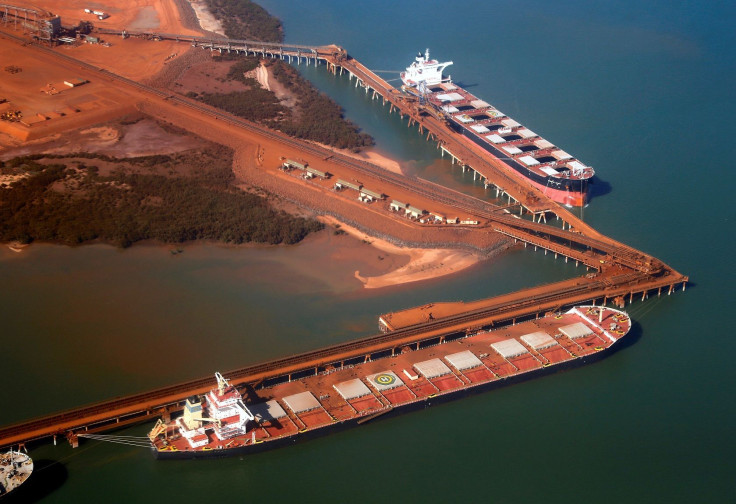Iron ore prices impacted following probe into speculative activity in Chinese futures market

Iron ore spot markets witnessed a downslide on Tuesday, according to reports. This comes at the heels of an investigation of speculative trading activity in China’s commodity futures market.
As a result, the futures were immediately affected. Subsequently, the spot markets also felt the impact. Both higher and lower grade ores were hit on Tuesday.
As noted by the Metal Bulletin, the spot price for benchmark 62 percent fines went down by 1.14 percent to US$91.27 (AU$119.14) a tonne. This came as the fourth fall in five sessions. It also negated the 2 percent rise that was seen on Monday.
As reported by Bloomberg, the National Development and Reform Commission (NDRC) is probing whether speculation has distorted commodity futures markets in China. This has paved way to a rise in producer and consumer price inflation. As part of the investigation, the commission questioned futures brokers earlier this month.
“China’s spot rebar prices retreated on Tuesday after surging a day earlier, as the futures market nosedived,” according to Metal Bulletin analysts. “An investigation by Chinese authorities on institutional investors to determine if they engaged in speculative or ‘non-conforming’ investment behaviour weighed heavily on the futures market, resulting in all of the rebar contract’s gains on Monday being wiped clean, and then some.”
Nevertheless, the benchmark price recorded at the end of February stood at a gain of 9.5 percent. With this, the total gain in 2017 amounted to 15.7 percent.
The most-active rebar on the Shanghai Futures Exchange was down 2.9 percent to settle at 3471 yuan (AU$659.6) a tonne. This came in contrast to Monday when the price reached 3648 yuan (AU$693.25), the highest in three years. In February, the construction steel product has upped by 7 percent. Meanwhile, iron ore on the Dalian Commodity Exchange went down by 2.8 percent to finish at 690.50 yuan (AU$131.1) per tonne. Last week, it set a record high of 741.50 yuan (AU$140.9). This month, it has increased by 9 percent. The average daily trading range has gone up by 4.2 percent in the past eight months.
The downslide could be attributed to the reported investigation into futures markets, according to Wang Di, from CRU consultancy in Beijing. The prices, she added, remain strong. "It just seems that the current steel price is very high and enables steelmakers to have really high margin. But it's still a question mark after the NPC meeting whether there's downstream demand that will support this," Di said.
Last week, stockpiles of imported iron ore at as many as 46 major Chinese ports touched 129.35 million tonnes. This was the highest recorded statistic since SteelHome consultancy began tracking data in 2004.






